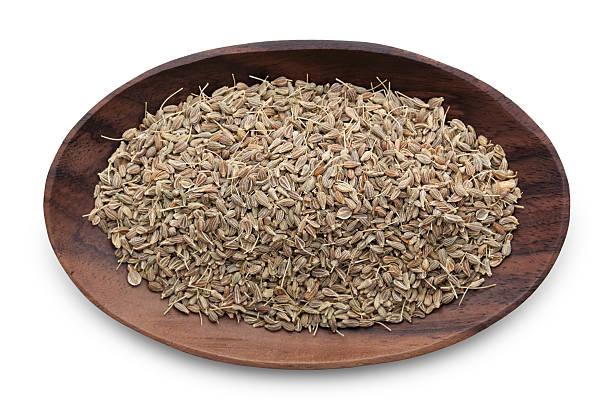Anise is an annual plant with white flowers, native to Egypt, Greece and Asia Minor, and popular in these regions, it is considered one of the best delicacies for its sweet aroma and pleasant aromatic taste.
And anise extracts have also been used in the preparation of some cosmetics, as well as the nutritional value of anise and the desired taste of everyone.
Learn about the benefits of anise for your health in this article:

Nutritional value of anise.
Anise contains many nutrients necessary for health, which may contribute to enhancing the benefits of anise for the health of the body and hair, as anise contains iron, which is necessary for the production of red blood cells in the body, and it also contains manganese, which is used in the body in metabolic processes, and acts as an antioxidant. for oxidation.
Seven grams (about 1 tablespoon) of anise may provide the following nutrients:
Calories: 23 calories.
Protein: 1 g.
Fat: 1 gm.
Carbohydrates: 3 g.
Fiber: 1 gm.
Iron: 13% of the RDA.
Manganese: 7% of the RDI.
Calcium: 4% of the RDI.
Magnesium: 3% of the RDA.
Phosphorous: 3% of the daily recommended amount.
Potassium: 3% of the RDA.
Copper: 3% of the RDI.
Anise benefits.
There are many benefits of anise to human health and treat various medical problems. Among these benefits are the following:

1. Anise benefits for the digestive system.
One of the important benefits of anise is to relieve constipation, as when mixed with other herbs, it has a laxative effect. Anise oil can also be used to treat irritable bowel syndrome and relieve depression associated with it.
One of the benefits of anise for the stomach is to prevent stomach ulcers and reduce the accompanying symptoms such as indigestion, vomiting, burning and nausea, as anise reduces the secretion of stomach acids, which protects it from damage.
2. Anise benefits for depression.
Anise contains antidepressant properties that help treat depression. Eating anise daily and regularly can contribute to reducing symptoms of postpartum depression, for example, and symptoms of depression that range in severity from mild to moderate.
3. Anise benefits for diabetes.
The potential benefits of anise for diabetics may be due to anethole, the active substance in anise that contributes to maintaining a balanced blood sugar level. Anise also contributes to reducing high blood sugar by changing the levels of many key enzymes, and enhancing the function of pancreatic cells that It produces insulin.
How to use anise?
Anise can be used in moderate quantities in cooking recipes and desserts. It is easy to find anise in stores, as it is available in the form of whole, ground or oil seeds. To obtain the various benefits of anise, it can be used in the following ways:
- Whole anise seeds can be used in recipes for cakes, desserts, or drinks.
- Anise syrup can be prepared by steeping anise in hot water to make a delicious cup of anise seed tea.
- Anise oil can be used in baking bread or used topically on the skin.
Anise side effects and harms.
Anise is considered safe to use for children and adults, but it may cause some side effects for some people, including the following:
- Hypersensitivity to anise
Some people may have an intolerance to anise, as well as allergic to anise-like plants such as asparagus, caraway, celery, coriander, dill, cumin, and fenugreek.
2. Low blood sugar level
Despite the benefits of anise for diabetics, eating anise may cause a lot of low blood sugar in these patients, so you should pay attention to the symptoms of low blood sugar in the patient.
This decrease may also lead to a real problem for patients who undergo surgery, as it is difficult to control the level of blood sugar during and after the operation, so the patient is advised to stop using anise two weeks before the date of the surgery.
3. Hormone sensitive cases
Anise contains estrogen-like compounds, so it has a similar effect to estrogen. It is advised not to take anise in hormonal-related conditions such as the following:
- breast cancer.
- Cervical cancer.
- ovarian cancer.
- Migratory endometrium.
- uterine fibres.
